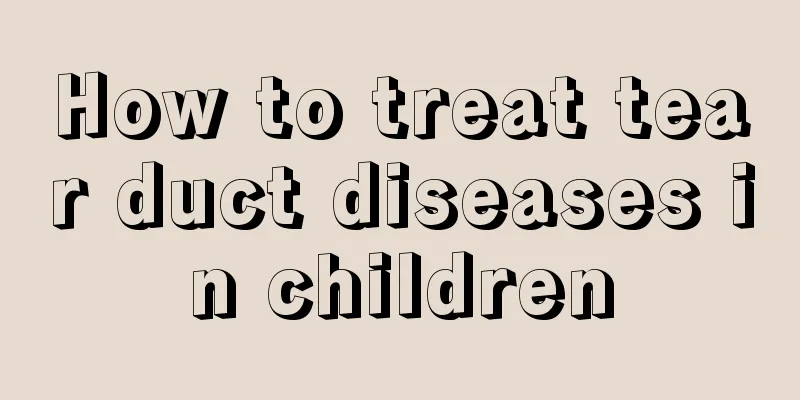What should I do if my child has eczema on his face?

|
Eczema is one of the most common skin diseases in life. Eczema looks red and densely distributed. After eczema appears, the skin will feel very itchy and needs timely treatment. Nowadays, eczema often occurs in children. The main reason is that children’s skin resistance is relatively low and their parents may be too careful in taking care of them. So, what should we do if our children have eczema on their faces? 1. Keep your skin dry. Do not use hot water to wash your baby's face. Use warm water and avoid using strong alkaline soaps. Keep your skin dry, neither too dry nor apply moisturizer with too many additives. Pay attention to cleaning your baby's hair. If the baby has seborrheic dermatitis and the scabs have hardened and stuck to the head, apply olive oil on the affected area first and then wash it after a while. 2. Cut your nails frequently. Cut your baby's nails frequently to prevent them from scratching their skin and causing secondary infection. 3. Choose products that do not contain hormones. There are many kinds of medicines on the market for treating baby eczema, but most of the medicines that claim to be quick and effective contain hormones. Once the medicine is stopped, the baby's eczema may relapse or even become more serious. Moreover, the residues after long-term use can cause abnormal skin color. Therefore, parents need to choose hormone-free products for babies with eczema to prevent future problems. Among them, hormone-free products are further divided into pure Chinese medicine ingredients and plant ingredients. It is generally believed that Chinese medicine products contain more complex ingredients and are therefore suitable for older children and adults. When a baby develops eczema on his face, parents should not apply medicine to the baby without authorization. They should use medicine under the guidance of a doctor according to the severity of the condition. 4. Avoid certain foods. Let your baby eat less animal protein, such as milk and eggs, and this must be done under the supervision of a doctor or nutritionist. Fish, shrimp and other irritating foods should be avoided during this period. For breastfeeding babies, mothers should also be careful not to eat seafood, shrimp, crab, and peppers. 5. Avoid external stimulation. Parents should always pay attention to changes in temperature and humidity around their baby. Babies with contact dermatitis should especially avoid exposing their skin to cold wind or strong sunlight. In summer, after your baby sweats during exercise, you should wipe off his sweat carefully; when the weather is cold and dry, you should apply anti-allergic non-oily moisturizer to your baby. In addition to paying attention to weather changes, parents should not let their babies wear clothes that are easy to irritate the skin, such as wool, silk, nylon, etc. |
<<: What should I do if my child has blisters in his throat?
>>: What disease is it that causes small white spots on a child’s face?
Recommend
How to take care of children's teeth
Almost all children like to eat sugary foods. The...
Symptoms of autistic children
Autism is a very common disease nowadays. There a...
How to treat children with cold, fever and convulsions
Many mothers have found that their children will ...
What should I do if my child's leg is broken?
In daily life, it is inevitable that there will b...
What are some exercises suitable for children to lose weight?
The main purpose of exercise for children is actu...
What to do if your baby has a bad taste in his mouth
Sometimes, if you smell carefully, you will find ...
Symptoms of heat stroke in young children
Heatstroke is a general term for the symptoms of ...
What are the causes of schizophrenia in children?
Childhood schizophrenia is a common mental illnes...
What is the cause of the child's bone cracking?
What worries parents the most during the growth o...
If your child has blisters on his tongue, these 6 methods are very effective!
Some children have blisters on their tongues, whi...
How many times a day is normal for babies to have bowel movements?
Every child should grow up healthy and happy. How...
What are the tips for constipation in 3-year-old children?
Speaking of constipation, I believe everyone is m...
What to do if your baby is allergic to milk
The birth of a baby brings a lot of joy to the wh...
What are the symptoms of autistic babies?
In today's society, mental health has become ...
Baby retching while feeding
Many mothers will find that their children will v...









